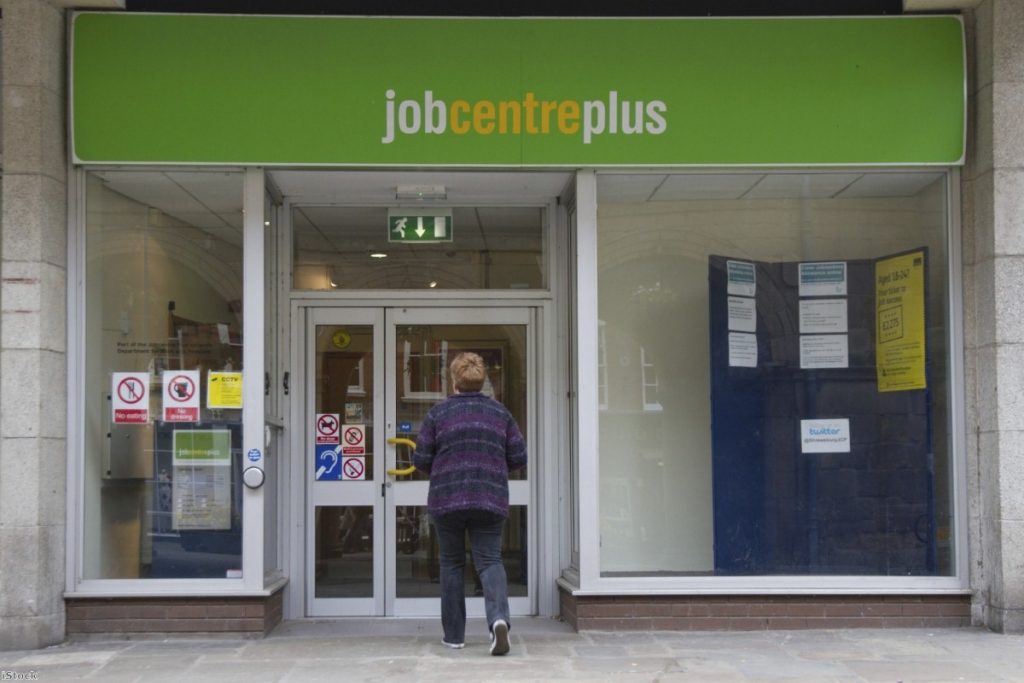"Why are people not angry? The whole country should be saying: 'This is an absolute disgrace.'"
This is a quote from the head of the Royal Society of Arts in Scotland, Jamie Cooke, at a recent roundtable event about the issues covered in the film I, Daniel Blake. It's a good question and one, I imagine, sums up the feelings of most of the campaigners who have spent the last few years shouting about the impact of the government's welfare reforms.
There have been moments since 2010 when it felt as if the message was finally getting through. At the height of anti-cuts movement, as tens of thousands took to the streets to protest, when George Osborne was booed by the audience of the Paralympics, when the news was filled with reports on the rise of food banks. At each of these points, it felt as if the tide might be turning and that people were waking up to the reality of cuts. That feeling was wrong or, at least, even if it was right, it wasn't enough to stop people voting for the Conservatives again in 2015.


If people dying after being found 'fit for work' or families turning to food banks to feed their children because of sanctions wasn't enough to make people think again, it was hard to imagine what was. It was game over. The Conservatives had a majority in parliament and with it a green light to continue with their cuts and reforms. All that mattered was balancing the books, regardless of how many people suffered in the process.
But does that mean the fight is over? Well, if the sole aim of protest and campaigning is to change things, than it might seem so. There have been some victories since then, the resignation of Iain Duncan Smith over cuts to disability benefit being the most significant. But overall, nothing much has improved for welfare claimants. If anything, it's getting worse.
Just take the roll out of Universal Credit. Blighted by a series of delays and cock-ups, the system is slowly being introduced across the country and with it comes even more suffering. A report published yesterday by the Northern Housing Consortium looked at how the implementation of Universal Credit is affecting housing organisations and found that almost all of those responding are having to step in to assist tenants with the cost of living.

This report came on the same day that the Child Poverty Action Group (CPAG) said that changes to Universal Credit since it was first introduced, mean that families with children will be hit the hardest, with single parent families being on average £2,380 worse of a year. On top of that, there is a built-in six week wait between applying for the benefit and receiving the first payment, something a recent investigation by the Guardian found was was pushing people into rent arrears and possible eviction.
The problem is that reports and investigations like this have now become so common that the findings are almost predictable. We know without any doubt, that cuts and changes to benefits have led to untold suffering. Politicians know this and voters know this. Yet people saw it and voted for more of the same.
It's not hard to understand why campaigners might be feeling like giving up the fight. But to do that would be to abandon people when they need support and solidarity the most.
With the news agenda now firmly fixed on Brexit wranglings, it will feel to the families queuing up at food banks or the people waiting weeks and months for the chance to appeal against a 'fit for work' decision that they have been forgotten. The role of campaigners and activists now is to show them that they haven't.
Natalie Bloomer is a journalist for Politics.co.uk. You can follow her on Twitter here.
The opinions in politics.co.uk's Comment and Analysis section are those of the author and are no reflection of the views of the website or its owners.










